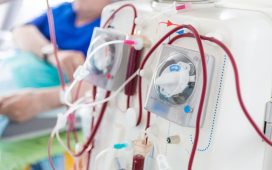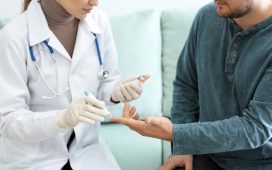DL model using screening mammography biomarkers can improve accuracy for predicting future breast cancer risk
THURSDAY, Dec. 3, 2020 (HealthDay News) — A deep learning (DL) model using screening mammography imaging biomarkers can improve accuracy for predicting future breast cancer risk, according to a study presented at the annual meeting of the Radiological Society of North America, held virtually from Nov. 29 to Dec. 5.
Leslie Lamb, M.D., from Massachusetts General Hospital in Boston, and colleagues designed a new DL algorithm to predict a patient’s risk of developing breast cancer using mammographic image biomarkers. The model was developed using consecutive bilateral screening mammograms from 80,818 patients between 2009 and 2016. Overall, 210,819 examinations in 56,831 patients, 25,644 in 7,021 patients, and 9,290 in 3,961 patients were used for the training, validation, and testing sets, respectively.
The researchers found that in the test set, 70.5 and 29.5 percent of the patients were postmenopausal and premenopausal, respectively; 55.7 and 44.3 percent had nondense and dense breasts, respectively. The area under the receiver operating characteristic curve was 0.71 for the DL model compared with 0.61 for the Tyrer-Cuzick (version 8) model.
“Why should we limit ourselves to only breast density when there is such rich digital data embedded in every woman’s mammogram?” a coauthor said in a statement. “Every woman’s mammogram is unique to her just like her thumbprint. It contains imaging biomarkers that are highly predictive of future cancer risk, but until we had the tools of deep learning, we were not able to extract this information to improve patient care.”
Copyright © 2020 HealthDay. All rights reserved.








